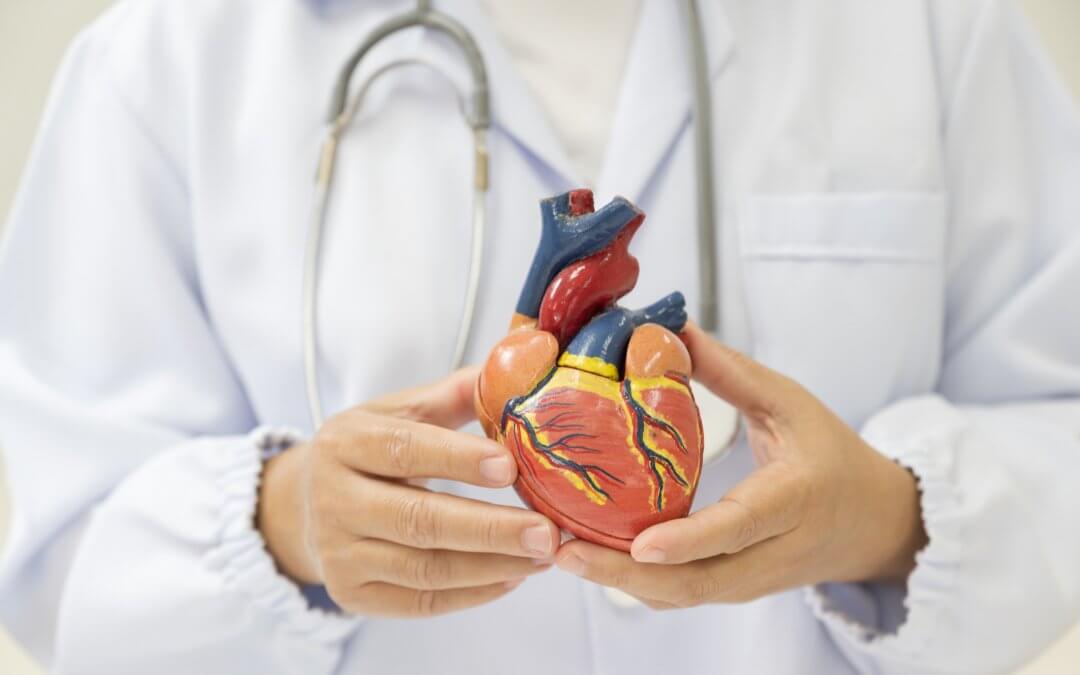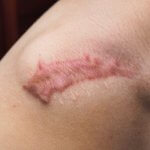The Phase II trial, which is the first of its kind in the U.S., is being carried out by researchers at the University of Louisville. It’s also the first time intravenous (IV) delivery will be trialled for the delivery of cell therapy for heart failure. [1]
It’s hoped that this pioneering approach could change the way that heart failure patients are treated.
What is heart failure?
Heart failure arises when the heart can’t pump blood around the body properly. This results in the body being unable to receive the oxygen it needs to function normally.
Heart failure can arise from various causes, with some of the most common being:
- Cardiomyopathy: A condition where the heart’s muscular wall thickens, making it difficult for the heart to effectively pump blood throughout the body.
- Heart Attack: A heart attack can cause lasting damage to the heart, impairing its ability to circulate blood efficiently.
- High Blood Pressure: Chronic high blood pressure puts strain on the heart, gradually reducing its pumping efficiency.
- Abnormal Heart Rhythms: An irregular, too slow, or too fast heartbeat can disrupt the heart’s normal pumping function. [2]
It’s estimated that heart failure affects more than a million people in the U.K. and at least 64 million people worldwide. [3]
Heart failure usually gets worse over time. However, while there is no cure, there are steps that can be taken to treat and manage symptoms, including surgery, having a pacemaker fitted, medication, and lifestyle changes. [4]
What is the new stem cell trial for heart disease?
The trial, which has been dubbed ‘CATO’, will enrol 60 participants across 3 locations, all of whom would have suffered from ischemic cardiomyopathy – heart failure arising from the damage caused by heart attack.
Conducted on a randomised, double blind and placebo controlled basis to ensure rigorous scientific standards, participants will be split into three groups: a control group, a single dose group and a multiple dose group.
All participants will receive four infusions delivered via IV over the course of 2 months.
The control group will receive four doses of placebo, the single dose group will receive one dose of umbilical cord-derived mesenchymal stem cells (UC-MSCs) and three doses of placebo, and the multiple dose group will receive four doses of UC-MSCs.
The first trial to test the delivery of cell therapy for heart failure in multiple doses, CATO will not only investigate the effectiveness of using UC-MSCs for treating heart failure, but also the effectiveness of their delivery in multiple infusions.
Participants will be monitored at intervals of 2 hours, 1 week, and 2 months after each infusion and then followed for 6 months after all four infusions to monitor the safety and efficacy of the therapy. [5]
Why are umbilical cord stem cells being used in the heart failure trial?
Previous studies have shown that mesenchymal stem cells derived from the umbilical cord have abilities that make them ideal in the treatment of cardiovascular diseases.
These include the ability to differentiate into cardiovascular progenitor cells, to modulate immune responses, and promote growth factors. [6] [7]
These cells, harvested from donated umbilical cords, have shown promise in treating a range of conditions, including ulcerative colitis, Crohn’s disease, and even COVID-19. [8] [9] [10]
Now, for the first time in the United States, they are being tested in heart failure patients.
UC-MSCs offer several advantages in this area over other types of stem cells.
Most notably, UC-MSCs can be isolated, stored frozen and then expanded into large quantities, making them readily available “off the shelf” when needed.
This reduces both the cost and the time required to initiate treatment, making it more accessible to a broader range of patients. [11]
Researchers leading the trial hope that umbilical cord-derived mesenchymal stem cells will provide a new and much needed therapeutic alternative in the treatment of heart failure.
Should I save my baby’s umbilical cord stem cells?
This trial demonstrates the growing interest and potential of umbilical cord stem cells to combat conditions, like heart failure, that are currently incurable.
If you have a history of heart disease in your family, it’s probably worth saving the stem cells from your baby’s umbilical cord.
While the stem cells used in this trial will be sourced from donated umbilical cords, privately storing the stem cells from your baby’s umbilical cord rules out the risk of rejection by ensuring that they always have access to stem cells from their own perfect match: themselves.
It also gives them the best chance of accessing future stem cell therapies currently being developed in clinical trials not just for heart failure but also for diseases and conditions like cancer, stroke, and Parkinson’s disease.
If you or a family member are expecting and want to know more about private stem cell storage, fill out the form below to receive your free Welcome Pack.
References
[4] (2022, May 19). Overview: Heart failure. NHS. https://www.nhs.uk/conditions/heart-failure/
FIND OUT MORE, REQUEST YOUR WELCOME PACK TODAY
All you need to know to make an informed decision.
Provide your contact details to request:
– Complete Welcome Pack and Parent’s Guide
– Information via email
– Contact from our specialist advisors









